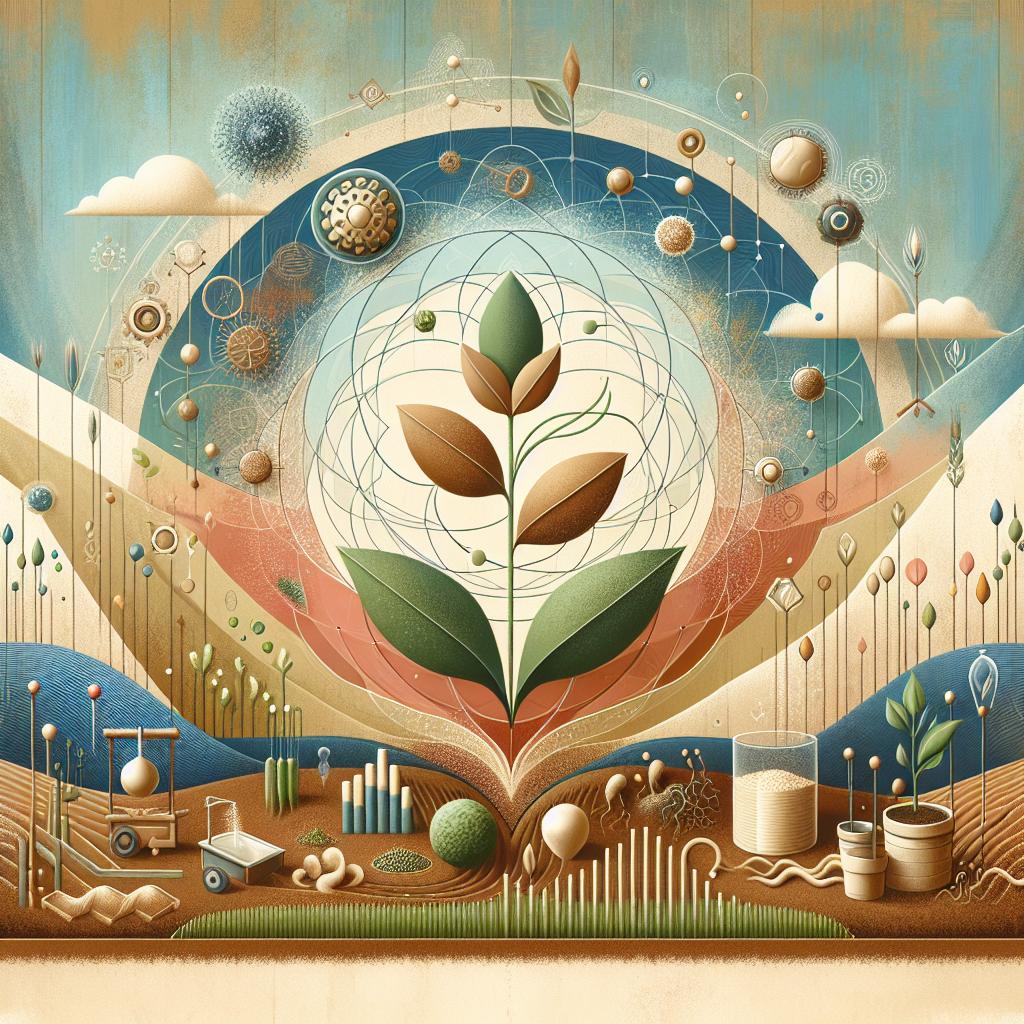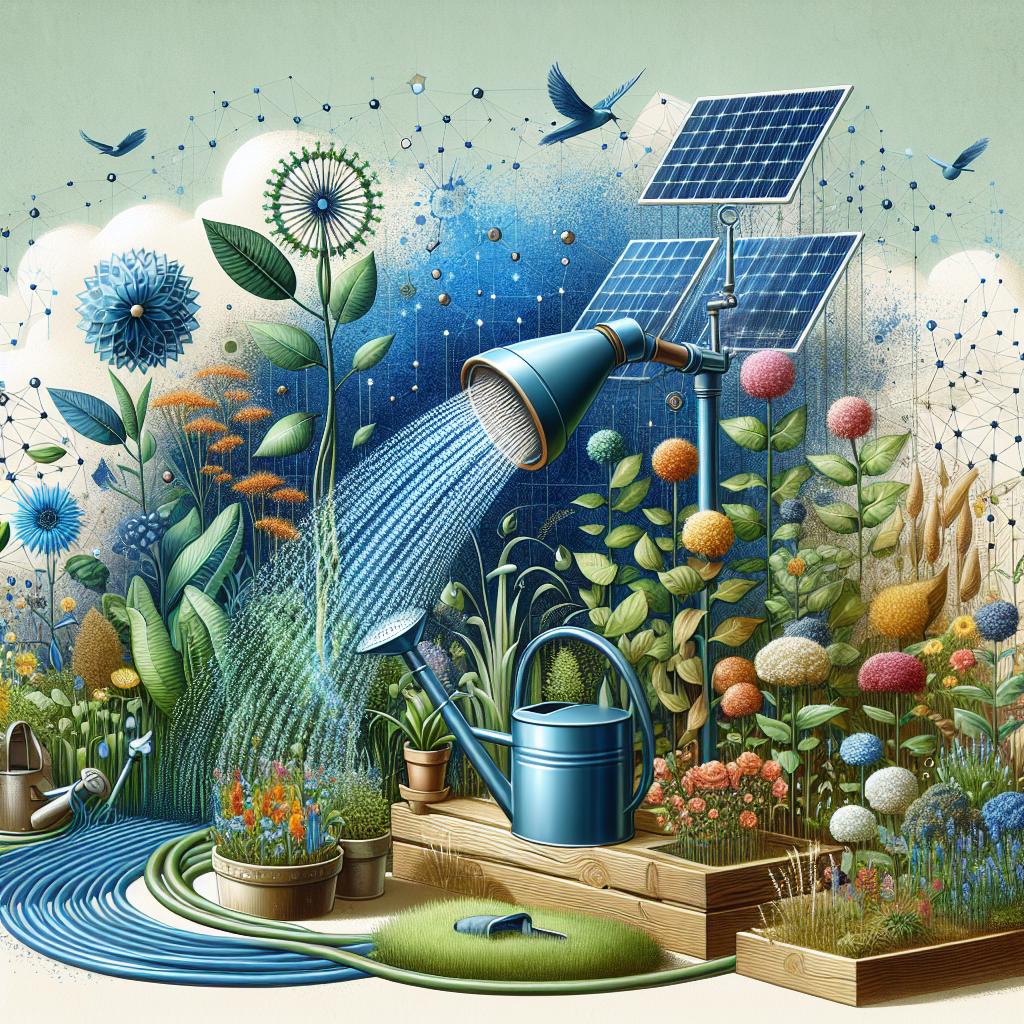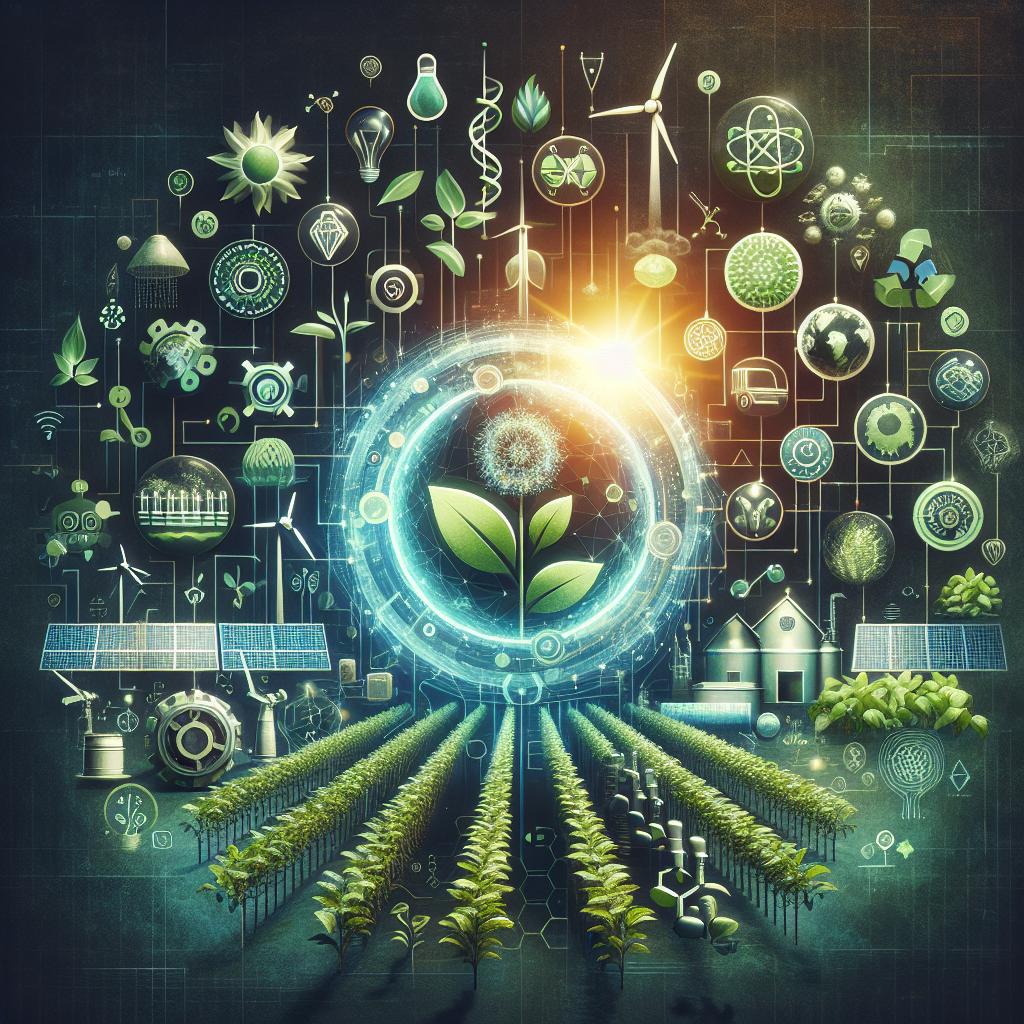This post may contain affiliate links which means I may receive a commission for purchases made through links. Learn more on my Private Policy page.
Introduction:
In a world where the hum of technology intertwines with the gentle rustle of leaves, modern irrigation systems emerge as unsung heroes of sustainable agriculture. Picture this: lush, thriving fields swaying in the breeze, vibrant crops soaking up the sun, and the well-timed drip of water nourishing each plant to perfection. But it’s not just about growing food; it’s about growing it responsibility. As we delve into the heart of modern irrigation, we’ll unveil how innovative practices not only boost harvests but also nurture our planet. Join us on this verdant journey to discover how these smart systems can conserve water, enhance biodiversity, and combat climate change—making our agricultural practices as green as the fields we cultivate. So grab your garden gloves and let’s dig into the delightful environmental benefits of modern irrigation!
Exploring Water Efficiency: How Modern Irrigation Saves Resources
Modern irrigation systems represent a significant leap forward in water efficiency, addressing the pressing need to conserve our precious water resources. With techniques like drip irrigation, smart sprinkler systems, and subsurface irrigation, farmers can deliver water directly to the plants’ root zones, minimizing evaporation and runoff. These technologies allow for precise control over water application, ensuring that crops receive just the right amount needed for optimal growth. This precision not only enhances crop yields but also drastically reduces water wastage, enabling farmers to grow more with less.
In addition to conserving water, these innovative systems also contribute to improved soil health and sustainability. By reducing the volume of water used, we can prevent the leaching of nutrients in the soil, preserving its quality for future generations. Here are some key advantages of modern irrigation systems:
- Reduced water consumption: Efficient systems use up to 50% less water compared to traditional methods.
- Enhanced crop resilience: Water-efficient practices help crops withstand drought conditions.
- Lower energy use: Smart technologies often require less energy to operate, minimizing the carbon footprint.
- Improved pest management: Healthy plants are less susceptible to pests and diseases, reducing the need for chemicals.
To illustrate the impact of modern irrigation systems, consider the comparison of water usage in various irrigation methods:
| Irrigation Method | Water Use Efficiency (%) |
|---|---|
| Surface Irrigation | 40-60 |
| Drip Irrigation | 90-95 |
| Sprinkler Irrigation | 70-80 |
This showcases how modern techniques not only save water but also foster a more sustainable agricultural ecosystem, ensuring that the agricultural sector plays a vital role in environmental stewardship.

The Soil Knows Best: Enhancing Soil Health with Advanced Systems
The foundation of any thriving ecosystem lies beneath our feet, where the health of the soil plays a pivotal role in sustaining life. Advanced irrigation systems, equipped with innovative technologies, work in harmony with the soil to ensure optimal conditions for crop growth. By harnessing data-driven methods, these systems can adjust water distribution according to soil moisture levels, preventing over-irrigation and promoting healthier root development. This thoughtful approach not only conserves precious water resources but also minimizes the risk of soil erosion and nutrient depletion, paving the way for a more resilient agricultural landscape.
Moreover, when soil health flourishes, so do the environmental benefits. Healthy soil acts as a natural carbon sink, sequestering carbon dioxide from the atmosphere and helping combat climate change. In addition, robust soil ecosystems host a myriad of beneficial microorganisms that enhance nutrient cycling and improve plant health. To illustrate these impacts further, consider the following table showcasing the direct benefits of advanced irrigation systems on soil vitality:
| Benefit | Description |
|---|---|
| Water Conservation | Efficient water use reduces wastage, ensuring sustainable practices. |
| Nutrient Retention | Prevents nutrient leaching, allowing for healthier crops. |
| Soil Structure Improvement | Enhances aggregation, promoting better aeration and root penetration. |
| Microbial Diversity | Supports a diverse population of microorganisms essential for soil health. |

Biodiversity Boost: Encouraging Ecosystems Through Smart Irrigation
The evolution of irrigation systems has brought forth not just agricultural efficiency but a remarkable boost to local biodiversity. With the implementation of smart irrigation technologies, water distribution is optimized, minimizing waste while ensuring that various ecosystems thrive. These systems, which utilize advanced sensors and automated controls, allow for precision watering that aligns with the natural rhythms of local flora and fauna. Consequently, these practices help create optimal habitats for a multitude of species, thereby promoting a healthy balance within ecosystems. Key benefits include:
- Enhanced Water Conservation: Reducing runoff and evaporation, ensuring that plants and wildlife receive the necessary moisture.
- Soil Preservation: Preventing soil erosion and degradation, fostering rich, fertile environments for various species.
- Plant Diversity: Supporting varied plant life, which consequently attracts different animal species, enhancing overall ecological resilience.
Moreover, by carefully managing water resources, these modern systems encourage the proliferation of native species which often play a vital role in the local ecosystem. For instance, certain plants are essential for providing food and shelter to wildlife, thus establishing a thriving habitat. This synergy between modern irrigation practices and nature generates a ripple effect that enriches the biodiversity of an area. In fact, a well-balanced agricultural landscape can significantly impact nearby wetlands and forests, fostering a diverse array of life forms. Below is a brief table summarizing the key environmental benefits of modern irrigation:
| Benefit | Description |
|---|---|
| Water Efficiency | Reduces waste and preserves water resources. |
| Wildlife Habitat | Creates and sustains habitats for various species. |
| Soil Health | Maintains soil integrity and prevents degradation. |

Future-Proofing Agriculture: Recommendations for Sustainable Practices
Modern irrigation systems represent a pivotal shift in how we approach agricultural water management, aligning productivity with sustainability. By leveraging technologies such as drip irrigation, smart controllers, and rainwater harvesting, farmers can drastically reduce water usage while enhancing crop yields. These systems not only conserve vital water resources but also minimize runoff and nutrient leaching, ensuring that water quality remains intact. Moreover, adopting precision agriculture techniques allows for tailored irrigation schedules that cater to the specific needs of different crops, thus enhancing resilience against climate variability.
Implementing such innovative irrigation practices can lead to a range of environmental benefits, making agriculture more sustainable for future generations. Here are some key advantages to consider:
- Reduced Water Waste: Efficient systems allow for targeted application, resulting in optimal water use.
- Soil Health Preservation: Controlled irrigation prevents soil erosion and maintains its structure.
- Energy Efficiency: Many modern systems run on renewable energy sources, reducing carbon footprints.
- Biodiversity Support: Efficient water usage can support local ecosystems by maintaining natural water levels.
To Conclude
As we close our exploration of the environmental benefits of modern irrigation systems, it’s clear that these innovative technologies are not just about watering crops—they’re about nurturing the planet itself. From conserving precious water resources to promoting biodiversity and reducing carbon footprints, modern irrigation offers a greener path for agriculture and the environment.
Imagine a future where flourishing fields coexist harmoniously with nature, where every drop of water is valued, and where farmers can cultivate their land with the assurance that they are protecting our planet for generations to come. By embracing cutting-edge irrigation solutions, we’re not only enhancing food security but also investing in the health of our ecosystems.
So, the next time you see a lush field fed by a sleek irrigation system, take a moment to appreciate the bigger picture. It’s a reminder that with thoughtful innovation and sustainable practices, we have the power to make a positive impact—not only on our harvests but also on our beautiful Earth. Together, let’s continue to advocate for and support the smart irrigation systems that are helping us turn the tide towards a more sustainable future. Happy gardening and happy planet!
This post may contain affiliate links which means I may receive a commission for purchases made through links. Learn more on my Private Policy page.
